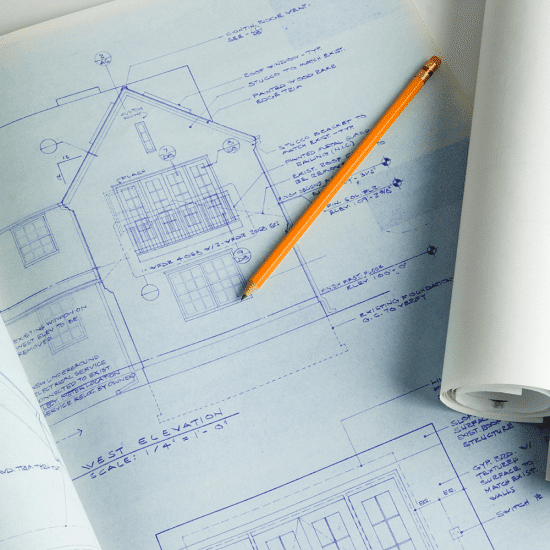Roofing Loans
Get pre-qualified for a new roof loan in just minutes. Checking rates won’t affect your credit score







New Roof Replacement Loans
Any type of home improvement or renovation project is an expensive undertaking, and while some can be seen as a luxury, the roof is something that simply can’t be ignored if it’s damaged. Ignoring a leaking roof can have catastrophic repercussions for the structural integrity of your home, so it’s important to have it put right. It is unlikely that you will be able to pay for a roof upgrade with savings alone, but with roof financing, you can ensure that the outside of your home is looked after.
Applying for a roof loan is fast and easy:
How Pasha Funding Works

Compare personal loan rates in April, 2025
Can you get a new roof replacement loan?
When it comes to financing a new roof, personal loans can be a valuable option to consider. Whether you're facing unexpected roof damage or planning a roof replacement for maintenance purposes, understanding the financing process can help you tackle this essential home improvement project without straining your finances.
Options for financing a new roof replacement
The common ways to finance a roof are:
- Roofing Contractor Financing: Some roofing companies offer financing options directly to their customers. These in-house financing programs may provide convenient and quick access to funds for your roof project. However, be sure to carefully review the terms and interest rates associated with these financing arrangements, as they may vary
- HELOC: A Home Equity Line of Credit will provide you with a relatively large borrowing amount, with a low credit rate. You can use this money as and when, only paying interest on what you use. The downside is, your home is used to secure the loan, so if you are unable to make repayments, you risk losing your home.
- Personal Loans: Personal loans are a popular choice for many home renovation projects. You will receive a lump sum which you are then required to pay back in either weekly or monthly repayments, with added interest. The borrowing amount and the interest rate will depend on your creditworthiness.
- Credit Card: Credit cards can be used to finance smaller roof projects or as a short-term financing solution. However, credit cards often come with higher interest rates compared to other financing options. If you choose this route, consider utilizing a card with a low introductory interest rate or a promotional offer to minimize costs.
- HUD Home Improvement and Repair Federal Loans: Insured by the U.S. Department of Housing and Urban Development, there are several federal loans available through certain lenders. Eligibility requirements will be more specific, with loan amounts depending on creditworthiness and cost of home improvement. Click here to learn more about what is available to you.
- Insurance Claims: If your roof has been damaged due to unforeseen events, such as severe weather, your homeowner's insurance policy may cover the cost of repairs or replacement. Review your insurance policy, file a claim if applicable, and work with your insurance provider to assess coverage and reimbursement options.
What are the pros and cons of roof financing?
PROS:
- Access to Funds: Roof financing provides homeowners with the necessary funds to address roof repairs or replacements, which can be a significant expense. It allows you to tackle the project promptly, ensuring the safety and integrity of your home.
- Flexible Repayment Options: Financing options for roofs often come with flexible repayment terms. You can choose a loan with a repayment period that aligns with your financial capabilities. This flexibility enables you to spread out the cost over time, making it more manageable within your budget.
- Preserves Savings: Instead of depleting your savings or emergency fund, roof financing allows you to preserve your cash reserves for other unexpected expenses or investments. By spreading the cost over time, you can maintain financial stability while still addressing the necessary roof work.
- Potential Tax Benefits: In some cases, the interest paid on a home equity loan or a mortgage refinance used for roof financing may be tax-deductible. Consult with a tax professional to determine if you qualify for any potential tax benefits based on your specific situation and loan type.
CONS:
- Interest and Fees: One of the primary drawbacks of roof financing is the potential for interest charges and associated fees. Depending on the loan type, interest rates can vary, and the total cost of the loan may be higher than the initial roof expense. It's crucial to carefully review and compare interest rates and fees from multiple lenders to minimize these costs.
- Debt Obligation: Roof financing creates a new debt obligation that needs to be repaid over time. It's essential to consider your current financial situation and ability to take on additional debt. Taking on more debt can affect your credit score and increase your overall debt-to-income ratio, potentially impacting future borrowing opportunities.
- Collateral Requirement: Some financing options, such as home equity loans or HELOCs, may require using your home as collateral. This means that if you default on the loan, the lender can seize your property. It's crucial to fully understand the terms and potential risks associated with securing the loan with collateral.
- Impact on Budget: Adding a monthly loan payment to your budget can affect your cash flow. Before committing to roof financing, consider whether you can comfortably manage the monthly payments along with your other financial obligations. It's important to factor in the additional cost when evaluating your overall budget and financial goals.
- Potential for Overspending: Roof financing may tempt some homeowners to overspend on unnecessary upgrades or more expensive materials. While it's important to invest in a quality roof, it's equally essential to stick to a budget and avoid unnecessary expenses that may strain your finances further.
Will a new roof increase home value?
Yes, a new roof will increase the value of your home, although, like all renovation projects, you are unlikely to get a 100% return on investment. According to Remodeling 2021 Cost vs. Value Report, you can recoup between 56% and 61% of a roofing replacement job cost, depending on the material.
Replacing your roof will allow you to ask more for your home, and it is more likely to be sold in a shorter time frame.
Quick links

Ready to apply for a roofing loan? Get started.
Need help finding the right loan?
No worries, we've got you covered! Compare personalized loan options in just minutes.
Will my home insurance pay for a new roof?
If your roof has been damaged by extreme weather or fire, your home insurance should pay for a new roof. If it is just a case of age or general wear and tear, roof replacement cannot be covered by home insurance. If you aren’t sure what your home insurance covers, read through your policy to ensure you aren’t leaving money on the table.
Do any roofing companies offer financing?
Yes, many roofing companies offer financing options to their customers. Recognizing that roof repairs or replacements can be a significant expense, some roofers partner with financial institutions or have in-house financing programs to help homeowners manage the cost of their projects. These financing options are designed to provide flexibility and convenience to customers who may not have immediate access to the funds required for their roof work.
How can I pay for my roof with no money?
If you are unable to afford roof financing, there are home improvement grants available at the federal, state, and local government levels. This will provide you with the money you need to cover the costs of your new roof, without having to pay anything back.
Examples include:
- Weatherization Assistance Program
- Section 504 Home Repair Program
- HOME Investment Partnerships Program
- HUD Community Development Block Grant Program
- Native American Housing Improvement Program
Generally, these programs are available to the elderly, the disabled, or homeowners with a low or moderate income. To find out what may be available to you, you can look toward your local Housing and Urban Development office or the National Residential Improvement Association.
What time of year is best to replace a roof?
The ideal time to replace a roof can depend on various factors, including the climate and weather conditions in your region. However, there are a few general considerations to keep in mind when determining the best time of year for a roof replacement:
- Moderate Weather Conditions: It is generally recommended to schedule a roof replacement during a season with moderate weather conditions. Mild temperatures, minimal rain or snow, and lower humidity can provide optimal working conditions for roofers and ensure proper installation.
- Spring and Fall Seasons: In many regions, spring and fall tend to offer more favorable weather for roof replacements. These seasons often have milder temperatures, reduced chances of extreme weather events, and less precipitation compared to summer or winter. Spring and fall can be popular times for roof projects, so scheduling in advance may be necessary.
- Avoid Extreme Temperatures: It's best to avoid roof replacements during extreme temperature conditions, such as the height of summer or the coldest parts of winter. Extreme heat can make roofing materials more difficult to handle and can impact the curing process of adhesives and sealants. Similarly, freezing temperatures can affect the flexibility and integrity of roofing materials, making installations more challenging.
- Consider Local Climate: Different regions have varying climates, so it's important to consider your local weather patterns. For example, areas with heavy rainfall or hurricane seasons might require more careful planning to avoid potential weather disruptions during the roof replacement process.
- Contractor Availability: Keep in mind that certain times of the year may be busier for roofing contractors due to higher demand. It's advisable to schedule your roof replacement well in advance to secure a reputable contractor and ensure availability during your preferred time frame.
What credit score do I need to finance a roof?
The credit score requirements for financing a roof can vary depending on the lender and the specific financing option you choose. Generally, a higher credit score improves your chances of qualifying for favorable terms and competitive interest rates. However, there is no specific credit score cutoff that applies universally to all lenders.
New roof replacement loan calculator
Total Payment
-
Total Interest
-
Monthly Payment
-
Ready to apply for a personal loan?
Compare rates from top lenders with no impact on your credit, ever.
Which lenders offer roofing loans?
Common personal loan lenders for roof financing include:
- LightStream: LightStream, a division of SunTrust Bank (now Truist), offers unsecured personal loans for various purposes, including home improvement projects such as roof replacements. They provide competitive interest rates and may consider factors beyond credit score when evaluating applications.
- SoFi: SoFi is an online lender that offers personal loans for home improvement projects, including roof financing. They provide fixed-rate loans with no fees, and borrowers may benefit from their member perks and resources.
- Marcus by Goldman Sachs: Marcus offers personal loans that can be used for a range of purposes, including home improvements like roof replacements. They provide fixed-rate loans with no fees and flexible repayment terms.
- Wells Fargo: Wells Fargo is a major bank that offers personal loans for home improvements, which can include financing for roof projects. They provide competitive interest rates and convenient online application processes.
- Discover Personal Loans: Discover is a well-known financial institution that offers personal loans for various needs, including home improvements. Their personal loans can be used to finance roof replacements, and they offer competitive rates and flexible repayment terms.
How to get a roofing loan
- Research and Compare Lenders: Start by researching and comparing different lenders that offer roof financing options. Consider factors such as interest rates, repayment terms, fees, eligibility requirements, and customer reviews. This will help you identify the lenders that best align with your needs and financial situation.
- Determine Loan Amount: Assess the estimated cost of your roof project and determine the loan amount you need to finance it. It's advisable to have a detailed understanding of the expenses involved, including materials, labor, permits, and any additional costs.
- Gather Required Documentation: Lenders will typically require certain documentation as part of the application process. Common documents include proof of income (pay stubs, tax returns, or bank statements), identification (such as a driver's license or passport), and proof of homeownership (property deed or mortgage statement). Prepare these documents in advance to streamline the application process.
- Check Credit Score: Review your credit report to get an idea of your creditworthiness. Ensure that there are no errors or inaccuracies that could negatively impact your credit score. If needed, take steps to improve your credit before applying for financing.
- Submit Application: Once you have selected a lender, visit their website or contact them directly to initiate the application process. Most lenders offer online applications that you can fill out from the comfort of your home. Provide accurate information about your personal details, income, and the purpose of the loan (roof financing).
- Review Loan Terms: After submitting your application, the lender will evaluate your eligibility based on factors such as credit score, income, and debt-to-income ratio. If approved, carefully review the loan terms, including interest rates, fees, repayment period, and any additional conditions or requirements.
- Accept the Offer: If you are satisfied with the loan terms, accept the offer by signing the loan agreement. By doing so, you agree to the lender's terms and conditions and commit to repaying the loan according to the agreed-upon schedule.
- Receive Funds and Start the Roof Project: Once you have accepted the loan offer, the lender will disburse the funds to your designated account. You can then use the funds to pay for your roof project, whether it's hiring a contractor, purchasing materials, or covering other associated expenses.
Need help finding the right loan?
No worries, we've got you covered! Compare personalized loan options in just minutes.
Find Your Best Rate
Compare Best Personal Loans
Personal Loan Payoff Calculator
Personal Loan Lender Reviews
Personal Loans By Credit
Personal Loans for Fair Credit
Personal Loans for Good Credit
Personal Loans for Excellent Credit
Personal Loan Types
Auto Repair Loans
Credit Card Consolidation Loans
Fast Personal Loans
Home Improvement Loans
Horse Barn Financing
Wedding Loans
Family Planning Loans
Funeral Financing
Land Purchase Financing
Manufactured Home Financing
Medical Loans
Cosmetic & Plastic Surgery Financing
Owner Builder Construction Loans
Personal Loans for House Down Payment
Personal Loans for Self Employed
Personal Loans for Furniture Expenses
Student Loans
Debt Consolidation Loans
Vacation & Travel Loans
Emergency Personal Loans
Personal Loans with Co-signers
Home Improvement Financing
Appliance Financing
Bathroom Remodel Financing
Basement Remodel Financing
Boat Dock Loans
Deck Financing
Driveway Paving Financing
Fence Financing
Flooring Financing
Furnace Financing
Garage Financing
Home Addition Financing
Hot Tub Financing
HVAC Financing
Home Insulation Financing
Interior & Exterior Painting Financing
Kitchen Remodel Financing
Kitchen Cabinet Financing
Pole Barn Financing
Roof Financing
Solar Panel Financing
Swimming Pool Financing
Sunroom Addition Loans
Window Replacement Financing
Loan rate & terms disclosure: Prequalified rates are based on the information you provide and a soft credit inquiry. Receiving prequalified rates does not guarantee that the Lender will extend you an offer of credit. You are not yet approved for a loan or a specific rate. All credit decisions, including loan approval, if any, are determined by Lenders, in their sole discretion. Rates and terms are subject to change without notice. Rates from Lenders may differ from prequalified rates due to factors which may include, but are not limited to: (i) changes in your personal credit circumstances; (ii) additional information in your hard credit pull and/or additional information you provide (or are unable to provide) to the Lender during the underwriting process; and/or (iii) changes in APRs (e.g., an increase in the rate index between the time of prequalification and the time of application or loan closing. (Or, if the loan option is a variable rate loan, then the interest rate index used to set the APR is subject to increases or decreases at any time). Lenders reserve the right to change or withdraw the prequalified rates at any time.
Requesting prequalified rates on Credible is free and doesn't affect your credit score. However, applying for or closing a loan will involve a hard credit pull that impacts your credit score and closing a loan will result in costs to you.












